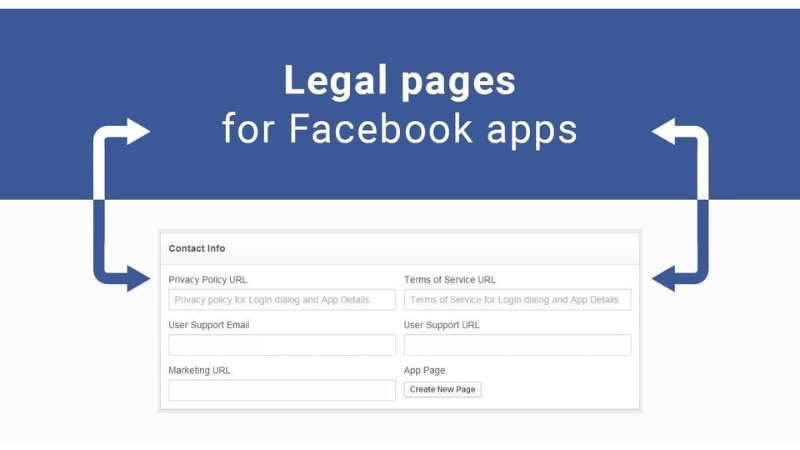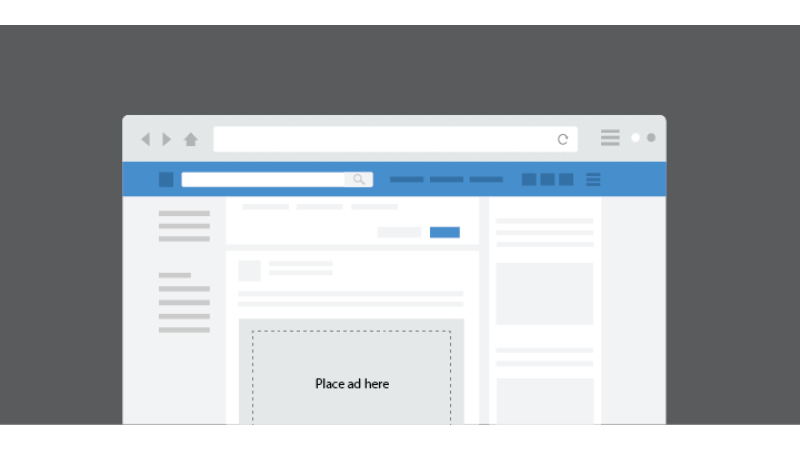Facebook ads for lawyers are becoming one of the most effective channels for reaching potential clients in the legal sector. However, for campaigns to run smoothly and avoid rejection, understanding compliance policies is mandatory. Unlike other industries, Facebook ads for lawyers demand absolute caution in language, imagery, and the presentation of services, as even a small inaccuracy can lead to the entire campaign being taken down. This article will help you master the latest legal compliance trends for 2026, optimize your ads legally while maintaining effective communication and professional credibility.
Why lawyers need to run Facebook ads in 2026
The market for legal services is more fiercely competitive than ever. 2026 marks a phase where customer behavior in seeking legal information shifts dramatically, with a near-total shift to digital platforms. Facebook, with over 3 billion global users, becomes an unmissable channel for acquiring potential clients. Given the unique nature of the legal industry, appearing at the right time with the right solution is a critical factor for building trust. Therefore, Facebook ads are not just a communication tool but also a way for lawyers to build credibility and spread a professional brand.

The shift in social media user behavior
Users today are no longer just browsing Facebook for entertainment. They seek advice, read reviews, watch consultation videos, and even choose a lawyer based on the credibility of the content displayed. Many tend to research legal issues directly on social platforms instead of Google. This habit makes your presence on Facebook the first touchpoint in the customer journey. No advertising means being overshadowed by hundreds of other consulting firms. Understanding this behavior helps optimize the advertising strategy toward personalization and deeper insight.
Benefits of Facebook Ads for the legal industry
Facebook Ads offer incredibly detailed targeting capabilities: age, location, occupation, and even marital status—crucial factors when promoting legal services. Furthermore, flexible costs allow small and medium-sized law firms to still run effective campaigns. Through formats like short consultation videos or expert articles, you can build a professional and trustworthy image. For us, Facebook Ads are a bridge between legal knowledge and the public’s actual needs—reaching the right person, at the right time, with the right message.
Facebook regulations specific to the legal field
Running ads in the legal industry is not as simple as in other sectors. Facebook considers this a sensitive industry because it involves consultation services, human rights, and personal legal matters. Understanding the specific regulations applied by the platform helps you avoid the risk of Facebook ad rejection, minimize account ad suspension, and build professional credibility in the eyes of clients.

Sensitive ad policies related to legal services
Facebook requires all advertising content for legal services to ensure truthfulness and not be misleading about the lawyer’s ability or scope of practice. Ads must not promise a “guaranteed win,” “100% free consultation,” or use language that implies a guaranteed outcome.
Additionally, the platform restricts ads targeting individuals facing specific legal risks. For example, you cannot target people who have just posted about “divorce,” “being sued,” “child custody demands,” “immediate debt relief,” or “anonymous legal advice.” This behavior is considered an infringement of user privacy rights.
To be approved, the content must clearly state that it is a service providing information or professional consultation, not personal intervention, and should not evoke fear. The language should be neutral, reflecting professionalism rather than “playing on emotions.”
Prohibited keywords and content in legal advertising
Moving to the core section: Facebook has a list of restricted keywords for this industry group. Phrases like “arrested,” “emergency divorce,” “claim child custody,” “get out of debt now,” and “anonymous legal consultation” often get ads flagged for violation.
Besides keywords, images and descriptions also require attention. Do not use images that evoke negative emotions, such as photos of courtrooms, handcuffs, tears, or arguments. Facebook evaluates this as exploiting “personal circumstances” and automatically removes the content.
Instead of using provocative words, focus on the value of in-depth consultation. Examples: “Support legal divorce file analysis,” “Provide reliable legal information,” or “Partnering with you in protecting your rights.” These expressions are both standard and easily approved.
Real-world examples of rejected ads
Experience shows that many campaigns are rejected for very minor errors. For instance, a law firm once ran an ad with the headline “Helping you win every divorce case” and was immediately taken down for violating the policy on Facebook “guaranteeing results.” Another case: an article titled “Free legal consultation for someone just arrested” was deemed to exploit sensitive behavior and violate privacy.
We recommend that you always test-run content in a limited capacity or request partial approval before deploying widely. Regularly updating new policies from the Meta Ads Library and monitoring notifications from the Ad Policy Center also help minimize the risk of rejection.
How to set up policy-compliant Facebook ads campaigns for lawyers
For the legal sector, running Facebook ads for lawyers is not just about technique or creativity but also a matter of compliance and credibility. We understand that even a minor deviation in content or imagery can lead to ad rejection or even account suspension. When building a campaign, the first step is not to rush into running it but to establish a proper foundation, from the objective, content, to the approach to viewers.

Defining the correct objective
Facebook currently divides ad objectives into three major groups: Awareness, Consideration, and Conversion. For the legal industry, selecting the wrong objective can easily lead the system to misunderstand the ad as a sensitive service. Therefore, we recommend prioritizing Awareness or Engagement objectives, rather than driving directly toward actions like “book a consultation.” This approach helps ads reach users more naturally, building trust before inviting them to make contact. Also, avoid language that expresses “guaranteed results” or “guaranteed win,” as this is a common reason for ad rejection.
Writing non-violating ad copy
Content is the area most prone to errors. Facebook is especially stringent with industries involving legal, financial, or medical elements. You should avoid describing specific legal situations (e.g., “Are you being sued?”) because the platform considers it an act of targeting personal attributes. Instead, use neutral phrasing like “Consultation service to help you understand your legal rights.” The language should be clear, neutral, and respectful to the reader. We often advise clients to use a professional, informative tone, avoiding exaggeration to both maintain trust and pass review easily.
Designing compliant imagery and CTAs
Advertising imagery in the legal industry should be symbolic rather than directly illustrating a situation. For example, choose photos of a desk, legal notebooks, or the symbol of justice—instead of photos of people being arrested, arguments, or courtrooms. The Call To Action (CTA) must also be concise and appropriate. Phrases like “Contact now for support” or “Learn more about your rights” are approved by Facebook more easily than “Book a free legal consultation.” Imagery and the call to action that are consistent with the content help the ad maintain a high approval rate and demonstrate the brand’s professionalism.
How to Target Customers While Staying
Legal Targeting is the part Facebook scrutinizes most when reviewing sensitive industries. Selecting audiences based on behavior or interests must be done on broad public groups, not narrowly defined by legal characteristics, gender, marital status, or personal issues. Instead, focus on audiences with general needs for legal information, such as business owners, managers, or law students. We often combine targeting interests like “small business,” “start-up,” or “personal development”—which is both policy-compliant and reaches a group likely to need future legal services.
Legal advertising trends for the legal industry in 2026
Entering 2026, Facebook ads for lawyers are witnessing a powerful transformation. As Facebook tightens its policies, law firms need to be not only creative but also to understand the rules of the game. The trend of legal advertising is not just about compliance but also about building long-term trust and credibility.

Applying AI and chatbots in legal service advertising
AI is gradually becoming an indispensable assistant in ad optimization. Chatbots help provide quick customer responses, offering basic consultation on legal procedures without violating personal consultation regulations. AI tools analyze user data to more accurately identify potential client segments, thereby reducing wasted ad spend. Integrating AI also allows for creating personalized content that reaches the right person, the right need, and the right context, while still ensuring compliance with Facebook’s sensitive policies.
Advertising based on credibility and customer reviews
In the legal industry, trust is the biggest asset. Facebook Ads in 2026 encourage content based on genuine customer reviews, rather than excessive promotional claims. Campaigns should focus on sharing case studies, actual feedback, and community activities to increase credibility. Credibility is demonstrated by how you prove your competence—not by boasting, but letting the results speak for themselves. This is the factor that helps ads pass review more easily and attract high-quality clients.
How to build a personal brand for lawyers on Facebook
A personal brand is no longer just a name on a sign; it is the story you tell every day. A professional image, valuable shared content, and a trustworthy tone help create a sense of approachability while maintaining professional standards. We encourage lawyers to invest in their personal profile, share useful legal knowledge, and maintain a stable presence. When the personal brand is strong enough, every advertising campaign becomes natural, effective, and completely legal.
Frequently Asked Questions
Does Facebook allow advertising for legal representation services?
Does Facebook allow advertising for legal representation services? Not directly. Facebook views litigation representation services as “sensitive social issue” content. Ads are only permitted if they generally describe capabilities or legal services without mentioning specific outcomes, specific cases, or guaranteeing a win.
Yes. Each platform has its own regulatory framework for legal content. Creative that is valid on Google Ads is not necessarily up to Facebook’s standards due to differences in rules regarding service descriptions and “trust signals.” You should build separate guidelines for each platform to ensure consistency while complying with each system’s review process.